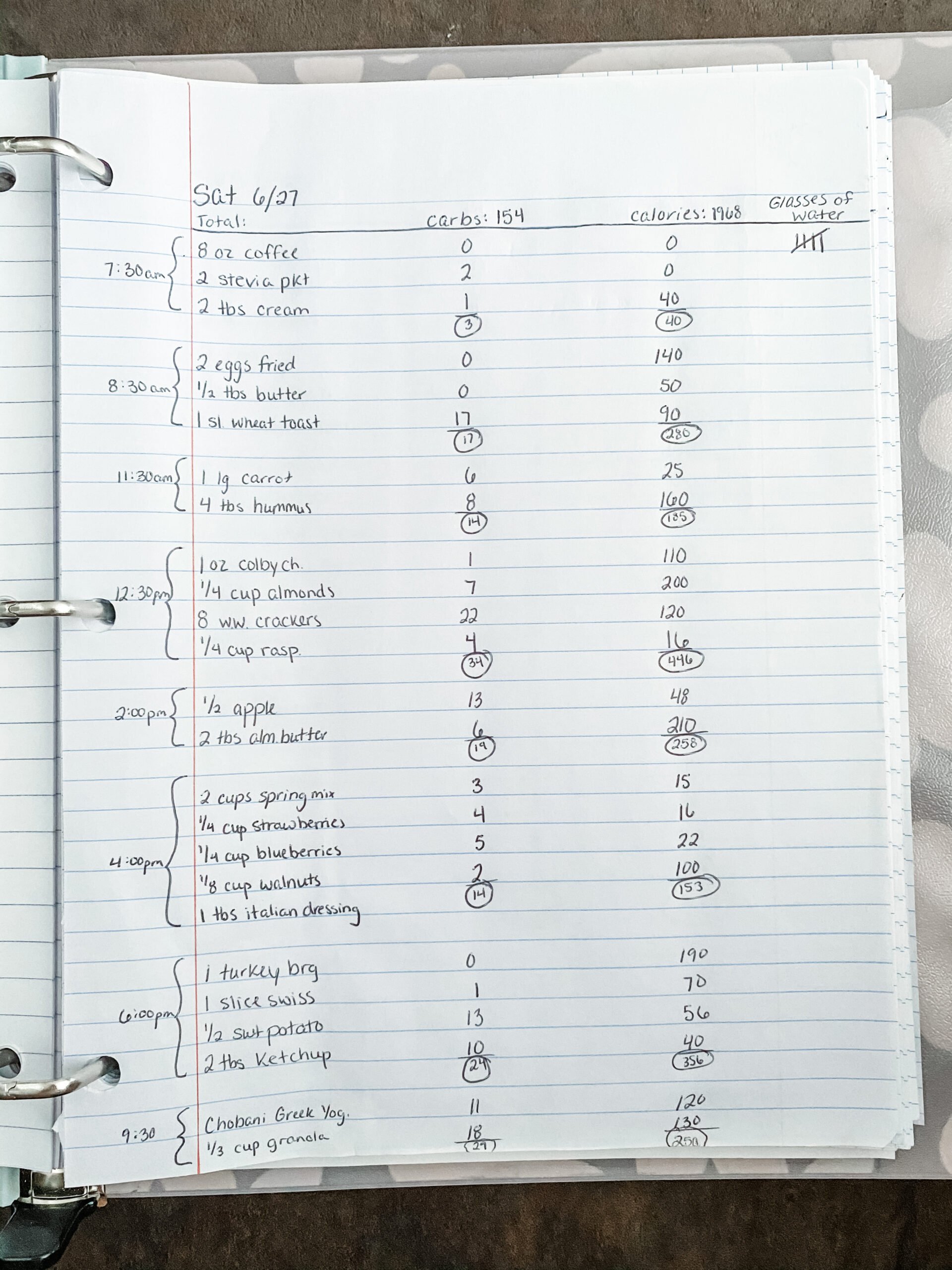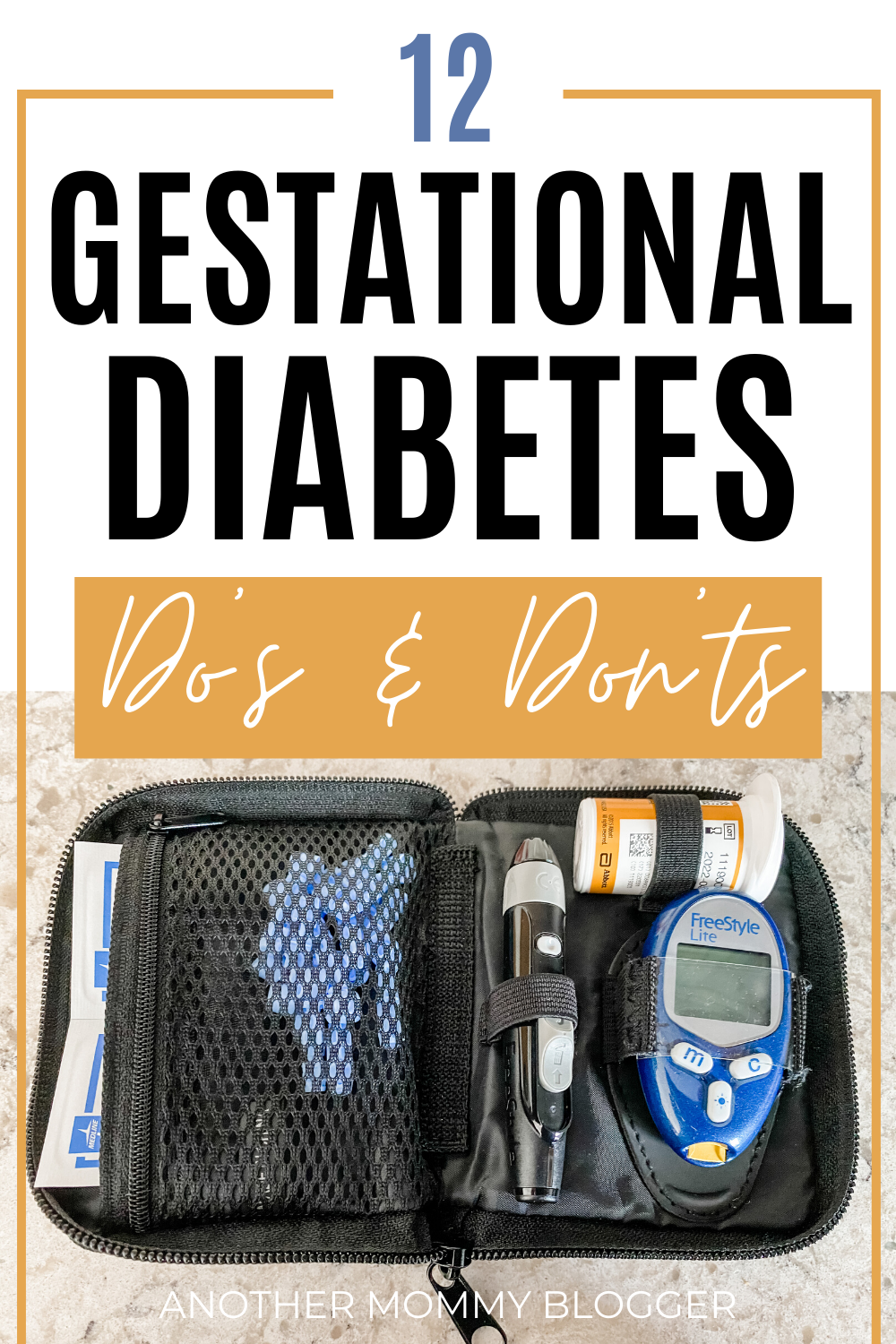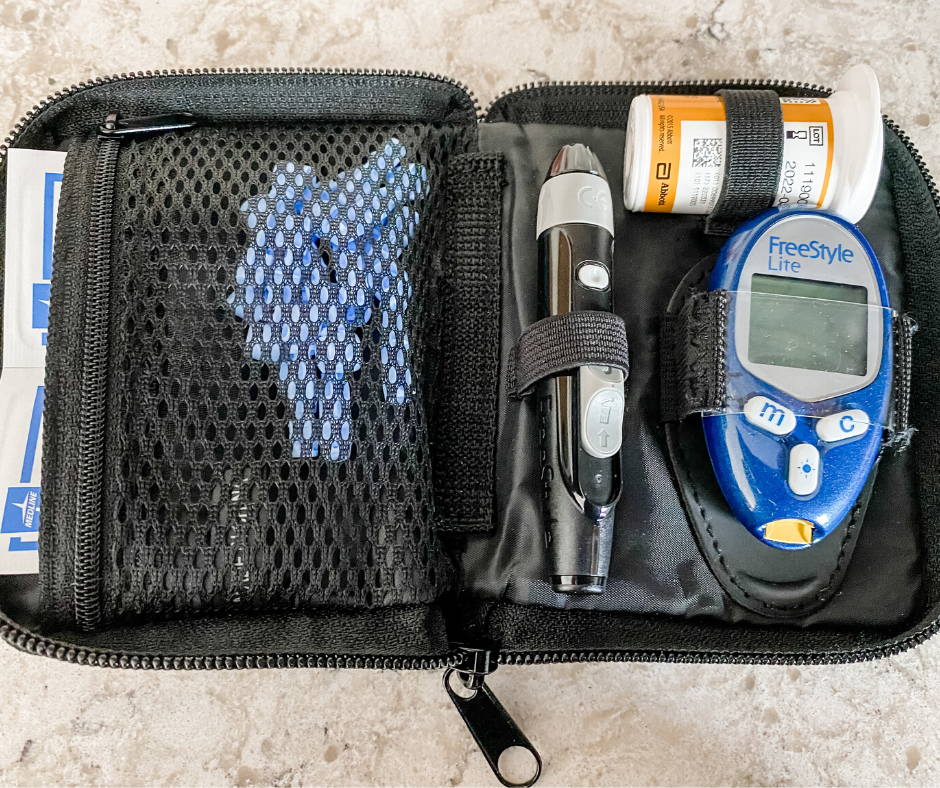Two weeks ago when I was diagnosed with gestational diabetes I was an emotional wreck. This pregnancy has been hard enough.
I was practically bed ridden with morning sickness my first trimester. The beginning of my second trimester when I finally started to feel better was the beginning of COVID-19 and the whole world shutting down.
Now with one trimester to go I’m greeted with gestational diabetes and all the fun that goes with it. That was a joke, there is no fun. I’m not having fun.
But ladies if you’re anything like me then you’re here reading this because you just got the call that you failed your three hour glucose test. You’re devastated and now against your better judgement you’ve run to the internet to gather all the information you can about what to do when you have gestational diabetes.
I’m here to tell you after having it myself for two weeks, you can take a deep breath and relax. It’s not fun, but I promise you it’s not that bad.
Things really could be worse. We should count our blessings that with proper diet, exercise and maybe a little medication our babies will be born happy and healthy.
As long as you listen to your doctor and follow all the rules of what to do and what not to do when you have gestational diabetes everything is going to be just fine.
So now that we took that deep breath, we’re calm, let’s talk about those gestational diabetes do’s and don’ts.
This post contains affiliate links. For more information, please read my disclosure here.
* I am not a doctor. This information should not be taken as a substitute for medical advice. I advise you to consult with your doctor for all your dietary and health needs*

What To Do When You Have Gestational Diabetes:
Keep A Food Journal:
At least for the first week or so you should be writing down everything you eat for each meal and snack. Also keep track of the carb and calorie count.
This way when you test your blood sugar and get a high reading you can go back and see what caused it and try to eliminate problem foods from your diet.
When you have gestational diabetes carbs are not off limits, they’re actually an essential part of your diet. You just need to be cautious of how many carbs are consumed in one sitting. Overdoing it will raise your blood sugar and that’s what you need to avoid.
I was advised to aim for 15-30 carbs for snacks and 30-45 carbs for meals. With three meals and 2-3 snacks a day, spread out every 2-3 hours. These are pretty common guidelines but of course ask your doctor what’s right for you when you have your appointment.
Controlling your weight gain with gestational diabetes is also important and that’s why you want to track your calories. You should be aiming for 1800 to 2400 during your third trimester depending on who you are. Definitely ask your doctor for a more precise number that they can determine based off your age, height, and weight.
Related Reading: 20 Meal & Snack Ideas For Gestational Diabetes
Eat Smaller Meals And Frequent Snacks:
To keep your blood sugar under control you’re going to need to eat smaller meals to keep your carb count under that 30-45 carbs per meal I mentioned.
This has probably been the hardest part for me because sometimes I just want to binge eat and feel full, but I can’t. I just keep telling myself that it’s not forever and I can have a snack in a couple hours.
See A Registered Dietitian:
Your doctor will most likely make you an appointment to see a registered dietitian and you’ll definitely want to go. I’m eagerly awaiting my appointment because I could use some help with meal planning.
A dietitian is going to help you understand how to control your gestational diabetes with diet so you can hopefully avoid needing medication.
They’ll help you come up with an eating plan which can be overwhelming when you try to do it on your own.
Drink Plenty Of Water:
Everyone should be drinking plenty of water but it is especially important for women with gestational diabetes.
Drinking plenty of water can help stabilize your blood sugar levels by flushing out through your system. I’ve been drinking at least a glass of water with every meal and between every meal.
Try To Get Exercise:
Exercise helps lower your blood glucose levels so it’s a very powerful tool in helping to manage gestational diabetes.
At 30 weeks pregnant in the middle of summer exercise is the last thing I want to do but I know it’s important. Playing with my daughter, taking walks with her to the river, and cleaning my house are how I stay active.
Whatever you do just keep it moderate. You should never be so out of breath that you can’t carry on a conversation.
Get Plenty Of Sleep:
Experts believe that lack of sleep can increase your risks of developing gestational diabetes and when you have gestational diabetes it’s important to get plenty of sleep to control your blood glucose levels.
I’ve done a very good job of keeping my blood glucose levels in healthy range and have only been slightly elevated once which I believe was due to a bad nights sleep.
It’s actually a funny story. I was woken up in the middle of the night because somehow a bat had gotten into our house and I woke up to it. ON. MY. SHOULDER. Needless to say I didn’t sleep much at all the rest of the night. When I finally got up and took my fasting blood sugar reading it was 98 instead of the recommended >95.
So if you’re eating right and exercising but you still aren’t getting good blood sugar readings then try going to bed a little earlier and see if that makes a difference.
What Not To Do When You Have Gestational Diabetes:
Don’t Beat Yourself Up:
While being overweight and not exercising does increase your risk of getting gestational diabetes know that perfectly healthy women who aren’t overweight, eat healthy and exercise do get it too.
Do not blame yourself mama. Don’t waste a second thinking if I hadn’t done this or if I had done this, no. You have it but there are steps you can take to insure a healthy outcome for you and your baby and that is the only place you need to focus your energy on right now.
Don’t Fear The Finger Prick:
I was really emotional when I found out I had gestational diabetes and with all those emotions flooding through me I actually got a little worked up about having to prick my finger to test my blood sugar.
I’m not usually afraid of needles or getting shots but the thought of getting pricked four times a day for the remaining 10-12 weeks of pregnancy had me anxious and depressed.
I’m glad to report that you really should not give it a second thought ladies. It is not bad at all. Depending on where you prick and what finger it ranges from a small pinch to almost nothing. I’m not lying sometimes if I get the right spot I think I didn’t even get poked.
Don’t Drink Sugary Drinks:
I was so guilty of this before my diagnoses. Water has been the last thing I want this pregnancy and I was drinking way too much juice, lemonade, and Gatorade.
Drinks like those are loaded with sugar and will spike your blood sugar into dangerous levels. It’s a bummer but it’s safest to stick to water for the rest of your pregnancy.
You have to be careful with milk too. Some women can drink it in moderation while others find it spikes their blood sugar too high.
Don’t Eat Processed Foods High In Sugar And Carbs:
You should avoid simple carbohydrates like the ones found in processed and sugary food because these can spike your blood sugar.
- white bread, rice, pasta
- candy
- soda
- cookies
- cakes
Instead try to choose options with complex carbohydrates.
- whole wheat bread, rice, pasta
- oatmeal (without added sugar)
- popcorn
- fruit
Don’t Cheat:
Usually on a diet I’ll give myself a cheat day every couple of weeks. You know a day where you let yourself eat the burger on a bun with a side of fries and a soda. You go all out.
With gestational diabetes you can’t do that and it’s hard. I like eating healthy and knowing my baby is getting the best nutrients to grow. But after eating what feels like nothing but almonds, whole wheat crackers, carrots and hummus for two weeks straight I just want to speed over to the closest McDonald’s and devour a Big Mac.
It’s just not worth it though. If untreated gestational diabetes can lead to serious healthy problems for mom and baby. It’s 10-12 weeks, not cheats days. We can do this.
Don’t Hesitate To Call Your Doctor:
Last but not least please don’t hesitate to call your doctor with any questions or concerns.
As much as I love that you are here reading my story and my tips for managing gestational diabetes remember that I am not a doctor. You should not use the Internet as your source of medical advice.
It’s great reaching out to other women and knowing your not alone in this but if you have questions or concern give your doctor a call.
You Might Also Like
What Not To Eat During Pregnancy
Foods To Avoid While Breastfeeding
9 Habits Of Women Who Don’t Gain Weight During Pregnancy









